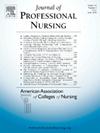Nursing students' personality traits, sleep quality, social media addiction, and academic performance: A multi-site structural equation model analysis
IF 2.8
3区 医学
Q1 NURSING
引用次数: 0
Abstract
Background
The associations between personality traits, sleep quality, social media addiction, and academic performance have been well-reported across the literature among university students. However, the interaction among these variables remains understudied among nursing students of underdeveloped countries like the Philippines.
Purpose
This study investigated the interrelationships of personality traits, sleep quality, social media addiction, and academic performance among Filipino nursing students.
Methods
A correlational, cross-sectional design and convenience sampling was used to recruit nursing students (n = 823) from five nursing colleges in the Philippines. Three standardized instruments (10-item Personality Inventory, 19-item Pittsburgh Sleep Quality Index, and 6-item Bergen Social Media Addiction Scale) were used to collect data from June to August 2023. Covariance-based structural equation modeling (CB-SEM) was employed to analyze the data. STROBE checklist guided in reporting study results.
Results
The emerging model demonstrated satisfactory model fit parameters. Nursing students reported high levels of extraversion (x̅=6.13, SD = 2.08) with low scores in emotional stability (x̅ =6.76, SD = 2.30) and openness to experiences (x̅ =8.80, SD = 2.09). The majority had poor sleep quality (x̅=8.35, SD = 3.12) and were at low risk for social media addiction (x̅=17.73, SD = 5.61). Conscientiousness (β = −0.13, p = 0.031) and emotional stability (β = −0.35, p = 0.002) inversely influenced sleep quality. Agreeableness (OR = 1.13, p = 0.007) and openness to experiences (OR = 1.11, p = 0.050) had a positive effect, while conscientiousness (OR = 0.84, p = 0.006) had a negative effect on high-risk social media addiction. Conscientiousness (β = 0.12, p = 0.010) significantly and positively influenced academic performance. Conscientiousness and emotional stability were able to measure 15.00 % of sleep quality's total variance.
Conclusion
Policymakers, nursing college administrators, and nurse educators could use these findings to evaluate students' personality traits and create programs that will promote better sleep quality and prevent social media addiction. Hence, enhancing academic performance.
护理专业学生的人格特质、睡眠质量、社交媒体成瘾和学习成绩:多站点结构方程模型分析
背景在大学生中,人格特质、睡眠质量、社交媒体成瘾和学习成绩之间的关系已有大量文献报道。目的 本研究调查了菲律宾护理专业学生的人格特质、睡眠质量、社交媒体成瘾和学习成绩之间的相互关系。方法 采用相关横断面设计和便利抽样法,从菲律宾的五所护理学院招募护理专业学生(n = 823)。采用三种标准化工具(10 项人格问卷、19 项匹兹堡睡眠质量指数和 6 项卑尔根社交媒体成瘾量表)收集 2023 年 6 月至 8 月期间的数据。采用基于协方差的结构方程模型(CB-SEM)分析数据。结果新建立的模型显示了令人满意的模型拟合参数。护理专业学生的外向性水平较高(x̅=6.13,SD=2.08),而情绪稳定性(x̅=6.76,SD=2.30)和经验开放性(x̅=8.80,SD=2.09)得分较低。大多数人的睡眠质量较差(x̅=8.35,SD=3.12),社交媒体成瘾的风险较低(x̅=17.73,SD=5.61)。自觉性(β = -0.13,p = 0.031)和情绪稳定性(β = -0.35,p = 0.002)对睡眠质量有反向影响。宜人性(OR = 1.13,p = 0.007)和经验开放性(OR = 1.11,p = 0.050)对高风险社交媒体成瘾有积极影响,而自觉性(OR = 0.84,p = 0.006)对高风险社交媒体成瘾有消极影响。自觉性(β = 0.12,p = 0.010)对学习成绩有显著的积极影响。结论政策制定者、护理学院管理者和护士教育者可以利用这些研究结果来评估学生的人格特质,并制定促进提高睡眠质量和预防社交媒体成瘾的计划。从而提高学习成绩。
本文章由计算机程序翻译,如有差异,请以英文原文为准。
求助全文
约1分钟内获得全文
求助全文
来源期刊
CiteScore
4.80
自引率
8.00%
发文量
153
审稿时长
52 days
期刊介绍:
The Journal will accept articles that focus on baccalaureate and higher degree nursing education, educational research, policy related to education, and education and practice partnerships. Reports of original work, research, reviews, insightful descriptions, and policy papers focusing on baccalaureate and graduate nursing education will be published.

 求助内容:
求助内容: 应助结果提醒方式:
应助结果提醒方式:


